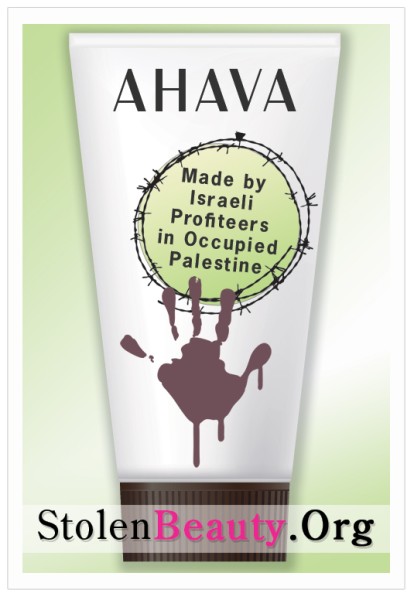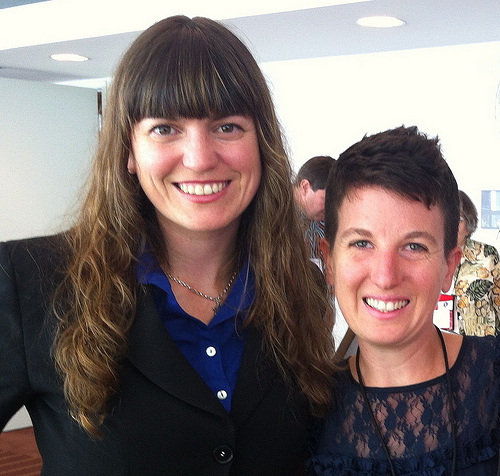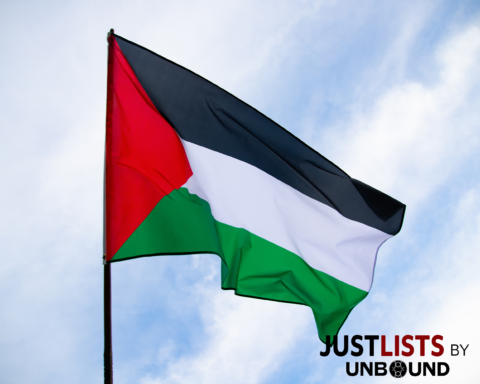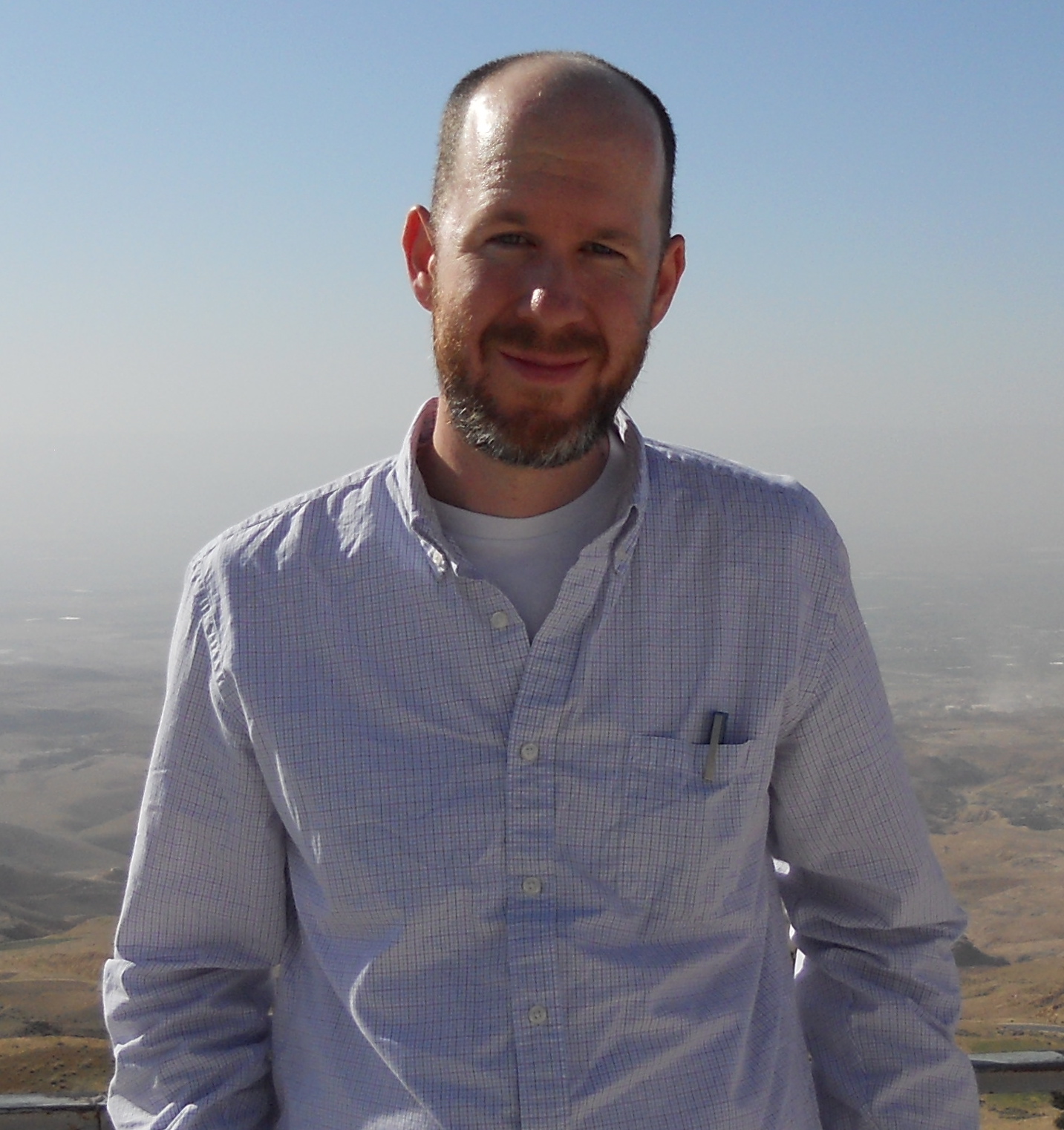From Two Jewish Social Justice Advocates
By Rae Abileah and Ariel Vegosen, originally published on Tikkun Dear Reverends and Church-goers,
Dear Reverends and Church-goers,
We are writing to you as two young American Jews who have just seen something extraordinary. Last week we were guests at the 220th Presbyterian Church (U.S.A.) General Assembly in Pittsburgh where we witnessed the historic plenary vote to boycott Israeli settlement products. We congratulate you as people of faith for aligning your practice with your values and taking a principled stand. Mazel tov!
At the General Assembly we watched Christian clergy and laypeople engaging in dialogue on a very difficult topic—the Israeli occupation of the West Bank—with respect, grace, and open hearts. It is a true blessing to walk the path of peace with you in solidarity. Both of us have spent years educating ourselves on the issues, traveling to Israel and Palestine, and researching companies complicit in the Occupation.
We hope and expect that you will guide your parishioners to make conscious consumer decisions. All of us can send a message with our pocketbooks and we can refuse to buy products complicit in human rights violations. Here are three specific products to avoid:
Ahava Dead Sea Cosmetics
Ahava is an Israeli company that manufactures beauty products in an illegal Israeli settlement using mud pillaged from the Dead Sea’s shores in the Occupied Palestinian territory of the West Bank. The company’s practices violate international law. Ahava products are labeled of “Israeli origin,” but according to international law, the West Bank cannot be considered to be part of the State of Israel. The Hebrew word “Ahava” means love, but there is nothing loving about what this company is doing. Over a dozen rabbis wrote a letter to Presbyterian Church clergy supporting the boycott of Ahava in advance of the General Assembly. Ahava is sold at small beauty stores and many chain stores such as Bed Bath & Beyond, Nordstrom, Macy’s, ULTA, Amazon.com, and Zappos.com.
Hadiklaim Dates
Hadiklaim is an Israel date growers cooperative that deals with several major supermarkets internationally and sells its products in the US primarily on the East Coast. Hadiklaim exports under the “King Solomon Dates” and “Jordan River” brand names by the Israeli company Almog Tradex Ltd, which claims to export 10,000 tons of Israeli fruits annually. Hadiklaim dates are packaged in settlement houses in Beit Ha’Arava and Tomer, close to the Palestinian village of Fasayil.
Further, date picking in the Jordan Valley is a hazardous business. Workers are hoisted into the trees with a cherry picker and are often left to work on a platform high above the ground for the duration of the working day without meal or toilet breaks. The majority of workers are Palestinian or Thai migrants—who are uniformly paid below the minimum wage.
SodaStream
SodaStream markets itself as an environmentally friendly home carbonation appliance to “Turn Water Into Fresh Sparkling Water And Soda” but there is nothing friendly about the destruction of Palestinian life, land and water resources. SodaStream is an Israeli corporation that produces all of its carbonation devices in an illegal settlement in the West Bank. Like Ahava, this settlement company obscures its true illegal origin by marking its products “Made in Israel”. SodaStream is sold at stores such as Macy’s, Bed Bath & Beyond, Crate & Barrel, Kohl’s, William-Sonoma, local hardware shops, and other home improvement retailers.
Here are a few other ways you can support the boycott of settlement goods:
- Urge your members to inform clerks and managers at stores that sell these products about the wrongful nature of these companies, asking them to de-shelve these products. Make sure that if your congregation has a gift shop, you don’t carry any of these products.
- Preach about this boycott in the great tradition of faith-based organizing, extending from Dr. King’s work and the bus boycott in Montgomery, Alabama, to Cesar Chavez’s grape boycott in Delano, California. Distribute this flyer from the Presbyterian Israel Palestine Mission Network.
- Have an open discussion in your church about the reality of the Israeli Occupation and how this boycott aligns church words with action.
- Work in solidarity with your Jewish friends to highlight that settlement boycott is finding increasing support globally, including within the Jewish and Israeli communities. Many rabbis, including Tikkun founder Rabbi Lerner, signed onto a letter urging the Presbyterian Church to boycott Ahava. During the past few months, several prominent Israelis and Jews have endorsed settlement boycott, including former Speaker of the Israeli Parliament and World Zionist Organization leader Avraham Burg, former Israeli Foreign Ministry director Alon Liel, and Jewish-American political pundit Peter Beinart. And let’s remind ourselves that it is possible to acknowledge the suffering of both Palestinians and Jews while clearly focusing on the urgency of ending the human rights violations Palestinians face daily under Occupation.
American historian Howard Zinn was fond of saying, “You can’t be neutral on a moving train.” Indeed, by continuing to invest in Caterpillar, Motorola Solutions, and HP, the church remains complicit in supporting the occupation. We hope and trust that in another two years, when the Presbyterian Church again convenes for the 221st GA, divestment from companies that do not meet the Mission Responsibility Through Investment standard for socially responsible investing will pass easily.
Young Jews made a strong statement in support of boycott and divestment at the GA. The Presbyterian Young Adult Advisory Delegates overwhelmingly spoke in support of divestment. If we are to engage and retain the membership of the next generation of Jews and Christians, we will need to become more open-minded, more attentive to equal rights for all people, and more willing to embrace diversity and human rights. Our young generation seeks to align words with actions in prophetic tradition.
Please contact us if you would like more support for the settlement boycott in your church. We’d be glad to speak at your church, connect you with speakers in your area, or discuss this with you by phone.
Sincerely,
Rae Abileah and Ariel Vegosen
Two young Jewish social justice leaders from New York City and San Francisco
Rae Abileah and Ariel Vegosen can be
contacted at [email protected] and [email protected].
For more info on settlement boycotts please visit www.stolenbeauty.org, www.codepink.org/boycottsodastream, and www.whoprofits.org.
For focused Presbyterian involvement, connect with the Israel/Palestine Mission Network.







Unbound Social